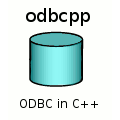
project
DefineSound
A DefineSound tag declares a set of samples of a sound effect or a music.
The sound samples can be compressed or not, stereo or not and 8 or 16 bits. The different modes are not all available in version 2, although the same tag is used in newer versions with additional capabilities.
The f_sound_is_16bits is always set to 1 (16bits samples) if the samples are compressed (neither Rawnor Uncompressed).
The f_sound_rate represents the rate at which the samples are defined. The rate at which it will be played on the target computers may differ. The following equation can be used to determine the ...
About SWF
Brief History
At the very beginning, a company created the SWF format to generate small vector animations on the Internet called Shockwave Flash (hence the name of the format, SWF.) It also included images. This company was bought by Macromedia around 1997 (if I recall properly). This is when Flash v3 was created. Since then, Macromedia created a new version about once a year up to version 8. At that time (in 2005/2006), Macromedia sealed a deal with Adobe which wanted to use the SWF format in their PDF files.
Today (May 1st, 2008), the SWF format is available for free to all.
There was ...
The entire SSWF project license
The following license covers the entire SSWF project.
Copyright (c) 2002-2009 Made to Order Software Corp.
Create a Table of Contents from a View
Setup
There are, I'm sure, many different ways to handle views with the Table of contents.
Here is what I think is the easiest at the moment:
1. Create a view and include a Title field (which generates a header for the title, most likely <H2>)
2. Create a node and include the view in the node using the Insert view filter1
3. Select a filter on this node that includes support for Insert views and Table of contents
4. If
- 1. Note that the Insert view filter was found to have some security issues. Use with care. The project home page has additional information about this module.
Adobe Flash Animation by Made to Order Software
Making a great thing even better!
![]()
Since it's initial release in 2002, SSWF has been extremely popular. Despite never being advertised, it has been downloaded more than 77,250 times just on SourceForge.net, has been converted to work on several Unix platforms not initially ...
odbcpp, a simple C++ library to access ODBC

The ODBC library is an interesting concept created by Microsoft in 1988. It is a library that wraps the implementation details of database managers inside drivers. And these drivers are accessible from the library.
One of the main problem with accessing any database system, is the large number of ...
Commercial license for odbcpp
Sun, 10/19/2008 - 23:00 — Alexis WilkeIn June 2008, Made to Order Software created a new software library called odbcpp. This library is an Open Source C++ wrapper of the Open Database Connectivity (ODBC) library started by Microsoft in 1988.
ODBC hides the details of back-end database systems. In other words, if you support ODBC, you can effortlessly connect to a very large number of database systems such as MS-SQL, Access, Oracle, MySQL and PostgreSQL.
odbcpp is an extension for C++ programmers. It is easy to use and it is a great solution to avoid many bugs as it will automatically handle all the possible ODBC errors for ...
Software Consulting Services
 Made to Order Software Corporation offers software consulting, analysis, and development services at any stage of a project. Our analysts can provide you well-defined and thorough user and developer documentation for your project in a timely manner. We can determine the skill set necessary to accomplish the goals of the project, and maximize the number of workers on the project to shorten the development period.
Made to Order Software Corporation offers software consulting, analysis, and development services at any stage of a project. Our analysts can provide you well-defined and thorough user and developer documentation for your project in a timely manner. We can determine the skill set necessary to accomplish the goals of the project, and maximize the number of workers on the project to shorten the development period.
From simple applications to complex e-Business solutions through realtime software and complex database systems, our people work at your convenience—in your office or ours.
 ...
...
Drop the cords!
Sun, 08/24/2008 - 12:38 — Alexis Wilke
No more cords for your computers to run? Is that a joke? Not really. All these cords to get electricity to our computers and other gadgets are annoyingly in our way.
RPATH not working in wxWidget
Wed, 07/02/2008 - 23:31 — Alexis WilkeAt my company we have the sandbox. This uses different free libraries that we compile within a specific directory (to not have problems with the system installation of a customer.) This means you need to include an RPATH in the binary (.ELF) files.
Most of the libraries that we use have a modern configure script that uses libtool. libtool knows how to automatically add the RPATH information to the libraries and binaries generated in a project.
